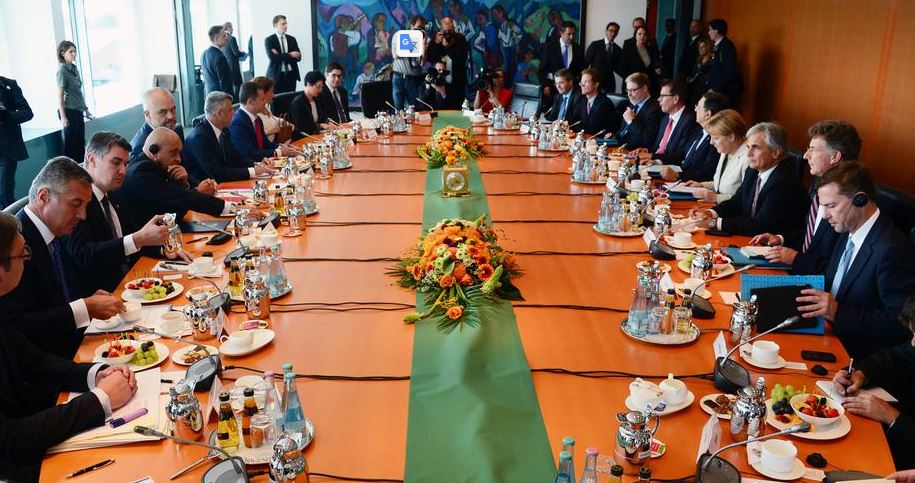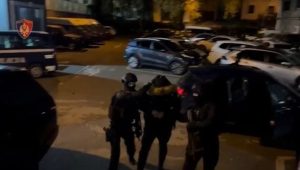06.07.2021 – 08:10
“Light and shadow” in recent years – Chancellor Angela Merkel’s balance sheet in the framework of the Berlin Process for the Balkans is doubled.
German Chancellor Angela Merkel believes that the Berlin Process brought an opportunity for a new level of cooperation in the region and many practical advances for the citizens of the Western Balkans.
At a press conference at the end of the Western Balkans summit in Berlin, she praised some progress that has been made for the benefit of the people, such as the abolition of roaming charges from 1 July, which allows people to call from countries without additional charges. other of the region, but also the green transport corridors, the exchange between students within the Office of Youth Cooperation, but also the stronger involvement of civil society that was achieved through the Berlin Process.
However, she said that many things have not been achieved yet, especially “mutual recognition of diplomas and free movement with ID cards in the region”, two of the main points of the Action Plan for the Establishment of a Common Regional Market adopted in November spent in Sofia.
Angela Merkel, who hosted the eighth summit of the Berlin Process, expressed the hope that this progress would be made at least on October 6 this year, when the EU summit with the leaders of the Western Balkans is scheduled to take place within the Presidency. Slovenian.
The last meeting of the Berlin Process
This was the German Chancellor’s last meeting with the leaders of the Western Balkans in the framework of the Berlin Process. It became virtual due to the pandemic. The Berlin process was Chancellor’s initiative, established in 2014, to keep the Western Balkans close to the EU, as long as the EU was not yet ready to accept new countries into its bay.
Asked about the rapprochement of the Western Balkan countries with the EU, Merkel said that there was both light and shadow:
“We have opened a large number of chapters, we have rebuilt the enlargement process. “For many countries in the Western Balkans, the speed is very slow, but the European Union has also had many reservations,” said the German chancellor.
“These reservations have been fair, although sometimes the affected parties have not seen them as fair,” she added. “A lot has been done, but there is also a lot to be done in terms of corruption,” she added, citing Merkel, Albania, as a positive example.
“When I see how new judges are being appointed, for example, with the Vetting process in Albania, then I see that sustainable progress is being made,” Merkel said.
“The Berlin process was fair”
Merkel further said that given the fact that the speed of enlargement is slower than many could have expected, the opening of the Berlin Process in 2014 was the right thing to do.
But she noted that new and unexpected difficulties, such as Bulgaria’s blockade of northern Macedonia, after Greece’s long-standing blockade was lifted, show the EU needs a change.
She said she had discussed this before with President Macron, at their last meeting in Berlin. “We must make the European Union capable of accepting new members,” said the German chancellor.
“So, in general, there has been light and shadow in recent years,” said the chancellor. “Some things have been done, but there is still a lot to do,” she added.
Civil society forum
In parallel with the summit chaired by Chancellor Merkel, the Civil Society Forum, organized by the Apsen Institute and the Association of Southeast Europe, took place. The digital forum presented to the representatives of the governments of the countries participating in the Berlin Process a large number of proposals for improving cooperation in various fields.
One of the requirements of civil society is its participation in controlling the use of financial means. The European Commission last year allocated up to 9 billion euros in gifts and up to 20 billion euros in loan guarantees to the Western Balkans, which the countries of the region will use for their economic development.
According to civil society, the European Union’s control mechanisms are not sufficient to prevent the misuse of funds. “They are put to use, after the evil has been done,” says Ardian Hackaj, from the Tirana-based Institute for Cooperation and Development, in an interview with DW. Hackaj thinks that the involvement of civil society in all stages of the decision-making process would be a good opportunity to control and prevent the misuse of tools for corrupt purposes./ DW





